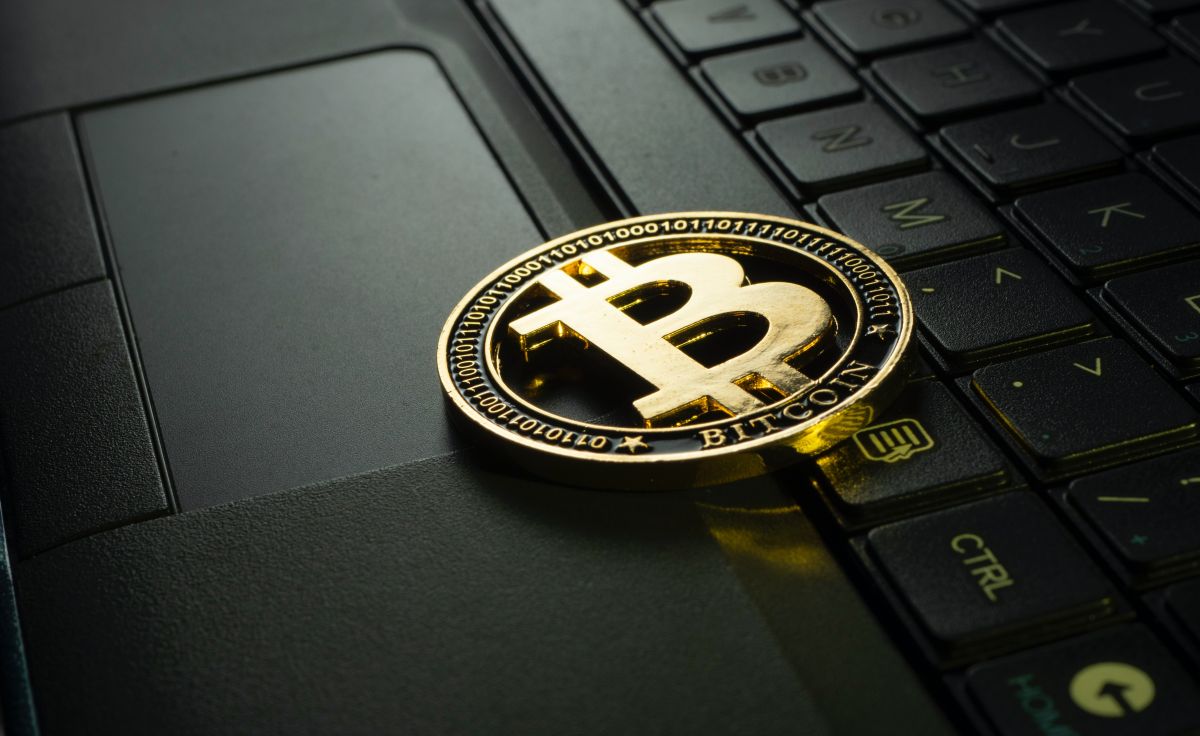In 2023, how you can start accepting Bitcoin payments in your store
In Brief
Using a BTC a BTC payment processor payment to accept Bitcoin in my store
Use of Bitcoin point-of-sale system as a method of payment

Introduction
Many businesses are now starting to accept Bitcoin as a form of payment for their products and services. This trend is expected to continue in the coming years, as more consumers become aware of the benefits of using digital currency over traditional forms of payment.
If you are thinking about accepting Bitcoin payments in your store or business, there are several steps you can take to get started. One of the first things you will need is a digital wallet, which allows you to store and manage your Bitcoin transactions. There are many different types of wallets available, so you should do some research to determine which one is best suited for your needs.
Once you have a wallet set up, it is important to start educating yourself about the basics of Bitcoin. This includes understanding how transactions work, how to buy and sell Bitcoin, and how to properly store your digital currency. Another important step is to learn about the different services and tools available for businesses that accept Bitcoin payments.
One of the most important things you can do as a business owner who accepts Bitcoin payments is to engage with the Bitcoin community. This can include attending conferences or networking events or using social media platforms and online forums to connect with other businesses that accept Bitcoin payments.
If you are ready to start accepting Bitcoin payments in your store or business, there are many resources available that can help guide you through the process. Whether you are just getting started or looking for ways to improve your existing Bitcoin payment process, the key is to stay informed and take action. With a little time, effort, and research, you can join the growing number of businesses that accept Bitcoin payments in your industry.
As more and more consumers become aware of the benefits of using Bitcoin for their purchases, businesses need to start accepting this digital currency. By taking the time to learn about Bitcoin and understand its benefits, you can start accepting Bitcoin payments in your store or business with confidence.
How to accept Bitcoin in my store?
One of the easiest ways to accept Bitcoin payments is using a Bitcoin payment processor. These services act as a middleman between you and your customers, allowing you to accept Bitcoin without worrying about technical details. All you need to do is sign up for an account and provide your bank account information. Then, when a customer pays you in Bitcoin, the payment processor will automatically convert the Bitcoin into your local currency and deposit the funds into your account.
Another option is to use a Bitcoin point-of-sale system. These systems work similarly to traditional POS systems but allow customers to pay with Bitcoin instead of cash or credit cards. There are a number of different Bitcoin POS systems, so you’ll need to research to find one compatible with your business. Once you’ve found a system that works for you, setting it up is usually as simple as downloading the software and following the instructions.
Of course, if you’re feeling more adventurous, you could always set up your Bitcoin payment processing system. This is a more complex option, but it can be a great way to get more control over how you accept Bitcoin payments. You’ll need to have a good understanding of the technical aspects of Bitcoin to do this, but if you’re up for the challenge, it can be an enriching experience.

No matter which method you choose, accepting Bitcoin payments is a great way to show your customers that you’re open to new payment methods and that you’re willing to go the extra mile to make doing business with you as easy as possible. If you take the time to learn about the different options and find the one that’s right for you, you’ll be able to start accepting Bitcoin payments in no time.
The essentials to accept Bitcoin in your store
Now that you know what Bitcoin is and how it works, you might be wondering how you can start accepting Bitcoin in your store. Here are the basics of what you need to do to get started:
Set up a Bitcoin wallet
The first thing you need to do is set up a Bitcoin wallet, the place to store your Bitcoin. This is where you will receive Bitcoin payments. There are many different types of Bitcoin wallets, with the most popular solutions including Blockchain Wallet and Coinbase Wallet.
Get a Bitcoin payment processor
Once you have a Bitcoin wallet, you must get a Bitcoin payment processor. It will allow you to accept Bitcoin payments in your store. The most popular Bitcoin payment processors are BitPay and Coinbase Commerce.
Start accepting Bitcoin payments
Once you have a Bitcoin wallet and a Bitcoin payment processor set up, you are ready to start accepting Bitcoin payments in your store!
You can do this in a few ways, but the most popular way is using a QR code. You can generate a QR code for your Bitcoin address and display it in your store. When someone wants to pay you in Bitcoin, they can scan the QR code with their Bitcoin wallet and send the payment to your Bitcoin address.
You can also use a service like BitPay to accept Bitcoin payments on your website. BitPay allows you to add a “Buy with Bitcoin” button to your website. When someone clicks on it, it takes them to a page where they can pay you in Bitcoin.
Get paid in Bitcoin
Once you have started accepting Bitcoin payments, you will need to do something with the Bitcoin you receive. The most popular way to do this is to convert it into fiat currency (USD or EUR) and then withdraw it to your bank account. However, you can also choose to keep your Bitcoin, either as an alternative payment method or as an investment.
All you need to accept Bitcoin in your store

Let’s have a more in-depth look into setting up a BitPay account. BitPay is a service that allows businesses to accept Bitcoin payments and then immediately convert them into fiat currency (USD, EUR, etc.). This way, you can avoid the volatility of Bitcoin and still get paid in your preferred currency.
To set up BitPay, create an account and add your bank account information. Then, you’ll be able to generate a unique Bitcoin address for each customer that wants to pay you in BTC. Once you have a BitPay account and a Bitcoin address for each customer, you’re ready to accept Bitcoin payments in your store! All you need to do is display your Bitcoin address somewhere visible, for instance, on your checkout page. Customers will be able to send payments directly to that address.
Using a Bitcoin payment processor to accept BTC
Using a processor to accept BTC in your store is easy and only takes a few minutes to set up. This guide will provide you with step-by-step instructions on how to use BitPay to accept Bitcoin payments in your store.
- Create a BitPay account. You can do this by going to the BitPay website and clicking on the “Sign Up” button.
- Create a Bitcoin wallet. You can do this by going to the BitPay website and clicking on the “Create Wallet” button.
- Get a Bitcoin address. You can do this by going to the BitPay website and clicking on the “Get A Bitcoin Address” button.
- Add it to your BitPay account. You can do this by going to the BitPay website and clicking on the “Addresses” tab.
- Set up a payment method. You can do this by going to the BitPay website and clicking on the “Settings” tab.
- Under the “Payment Methods” section, you will need to select “Bitcoin.”
- Once you have selected Bitcoin as your payment method, you will be given a Bitcoin address. This is the address you will need to give your customers when they make a payment.
Advertise that your store accepts Bitcoin
There are many different ways to do this. You can add a Bitcoin logo to your website, hang up flyers or posters around town, and mention it in any press releases or newsletters you send out. Other merchants may also be interested in accepting Bitcoin, so reaching out to other business owners can help promote the idea of using cryptocurrency as a payment method.
While Bitcoin might seem like a new technology, it has been around for over a decade. Many people are already using Bitcoin to make purchases online or in brick-and-mortar stores. By accepting Bitcoin payments in your store, you can help boost interest in this innovative payment method and attract customers who prefer to use cryptocurrency.
Additionally, you may benefit from lower transaction fees and faster processing times compared to other payment methods. So if you’re looking to accept payments in a way that is convenient and secure, Bitcoin may be the right choice for your business.
If you are interested in accepting Bitcoin payments in your store, there are a few things you should consider. First, you will need to set up a digital wallet to store your cryptocurrency. There are many different types of wallets available, so be sure to do some research and find one that suits your needs.
You should also look into merchant services or payment processing platforms that can help facilitate Bitcoin transactions in your store. These services typically offer features such as automatic conversion to local currency, support for multiple cryptocurrencies, and transaction tracking tools.
Finally, be sure to get advice from other merchants who have already started accepting Bitcoin payments in their stores. This can help you avoid common pitfalls and learn about strategies that have proven successful for other businesses.

Overall, there are many benefits to accepting Bitcoin payments in your store. By taking the time to do your research and set up the necessary systems, you can help grow your business and take advantage of this innovative payment method.
What to be aware of when accepting Bitcoin in your store
When you start accepting Bitcoin in your store, remember a few things. Unlike traditional payment methods, Bitcoin is a decentralized currency, meaning no central authority or intermediary is involved in the process. This can be both good and bad news for businesses.
It’s good because you don’t have to worry about things like chargebacks or payment processing fees. However, keep in mind you have to take on the responsibility of keeping track of your Bitcoin income and making sure it gets safely deposited into your wallet.
Ensure you can set up an online service or get a physical device, such as a point-of-sale system. Also, consider how you’ll handle refunds and returns. If anything goes wrong with the payment, there is no central authority to turn to and fix the issue. You’ll also need to consider the tax implications of accepting Bitcoin – in some jurisdictions, you may be required to pay taxes on your Bitcoin income.
Another thing to keep in mind is that because Bitcoin is still a relatively new technology, there is still some uncertainty surrounding its long-term stability. This means that while prices could continue to rise in the future, there’s also a chance that they could drop just as dramatically. As a business owner, you need to be prepared for this possibility and have a plan in place for what you would do if the value of Bitcoin suddenly dropped.

Accepting Bitcoin in your store can be a great way to tap into a new market of digital currency users. Make sure you research and understand the risks involved before getting started.
FAQs
You can accept Bitcoin in your store using a payment processor that supports BTC payments, such as BitPay. To get started, you’ll need to create a BitPay account and generate a BTC address for your store. Once you’ve done this, you can display the BTC address on your store’s checkout page, and customers can send payments to that address.
A few benefits of accepting Bitcoin as a payment method in your store exist. For one, it allows you to tap into a new market of potential customers interested in using cryptocurrency. Additionally, it can help you save on fees as Bitcoin transactions typically have lower fees than credit card or PayPal payments. Finally, it can provide you with a certain degree of protection from fraud, as Bitcoin payments are irreversible.
Like with any new technology or payment method, there are always some risks involved with accepting Bitcoin payments. For one, the value of Bitcoin can be volatile, so there’s always a chance that the BTC you receive today could be worth less tomorrow. Additionally, Bitcoin is a decentralized currency, so there’s no one entity that you can turn to if something goes wrong with a transaction. That said, as long as you take some basic precautions, such as ensuring that you only accept payments from trusted sources and keeping your BTC in a secure wallet, you should be able to minimize these risks.
If you’re interested in accepting Bitcoin in your store, the first step is to find a payment processor that supports BTC payments. We recommend using BitPay, as they’re one of the most popular and user-friendly options available. Once you’ve created a BitPay account, you’ll need to generate a BTC address for your store. Once you’ve done this, you can display the BTC address on your store’s checkout page, and customers can send payments to that address.
Conclusion
Overall, accepting Bitcoin in your store can be a great way to boost sales and reach new customers. There are many things to consider when you’re getting started, including the tax implications, security considerations, and price volatility of Bitcoin. By doing your research and planning, you can successfully start accepting BTC in your store and reap the benefits of this new payment option.
Related articles
- Bitcoin gaming ecosystem Zebedee raises $35M from investors, including Square Enix
- Jay-Z and Jack Dorsey teamed up to launch a free financial educational program “The Bitcoin Academy”
- Twitter co-founder Jack Dorsey announces new Web5 platform built on the Bitcoin blockchain
Disclaimer
In line with the Trust Project guidelines, please note that the information provided on this page is not intended to be and should not be interpreted as legal, tax, investment, financial, or any other form of advice. It is important to only invest what you can afford to lose and to seek independent financial advice if you have any doubts. For further information, we suggest referring to the terms and conditions as well as the help and support pages provided by the issuer or advertiser. MetaversePost is committed to accurate, unbiased reporting, but market conditions are subject to change without notice.
About The Author
Moses is an experienced freelance writer and analyst with a keen interest in how technology is disrupting the financial sector. He has written extensively on the subject of cryptocurrencies from an investment perspective, as well as from a technical standpoint. He has also been involved in trading cryptocurrencies for over two years.
More articlesMoses is an experienced freelance writer and analyst with a keen interest in how technology is disrupting the financial sector. He has written extensively on the subject of cryptocurrencies from an investment perspective, as well as from a technical standpoint. He has also been involved in trading cryptocurrencies for over two years.


















































